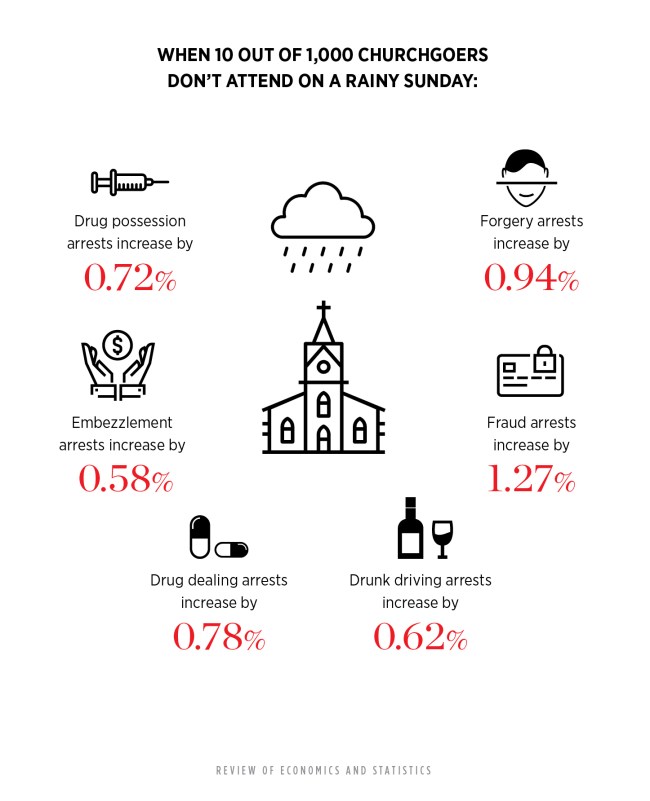When it rains on Sunday morning, fewer people go to church. When fewer people go to church, more people buy drugs, commit forgery, and embezzle money.
A new study from Jonathan Moreno-Medina at Duke University reveals a consistent correlation between church attendance and crime in data from 1,361 US counties over a period of 36 years.
His research found that an hour of Sunday morning rain reduces church attendance in America by about 17 percent. Laying historical records of precipitation on Sundays between 9 a.m. and 1 p.m. next to year-over-year crime reports, Moreno-Medina was able to show that more rainy Sundays regularly resulted in more drug-related and white-collar crimes. According to his paper, “Sinning in the Rain,” the relationship is consistent across decades. Church attendance appears to have no effect, however, on violent crimes such as rape and murder.
Sociologists, criminologists, and Sunday school teachers have long argued for a connection between church attendance and crime rates, but it’s hard to prove. Moreno-Medina claims to be the first to find “a credible causal link.” He admits, however, that “more research is needed to disentangle the mechanisms driving these results.”












